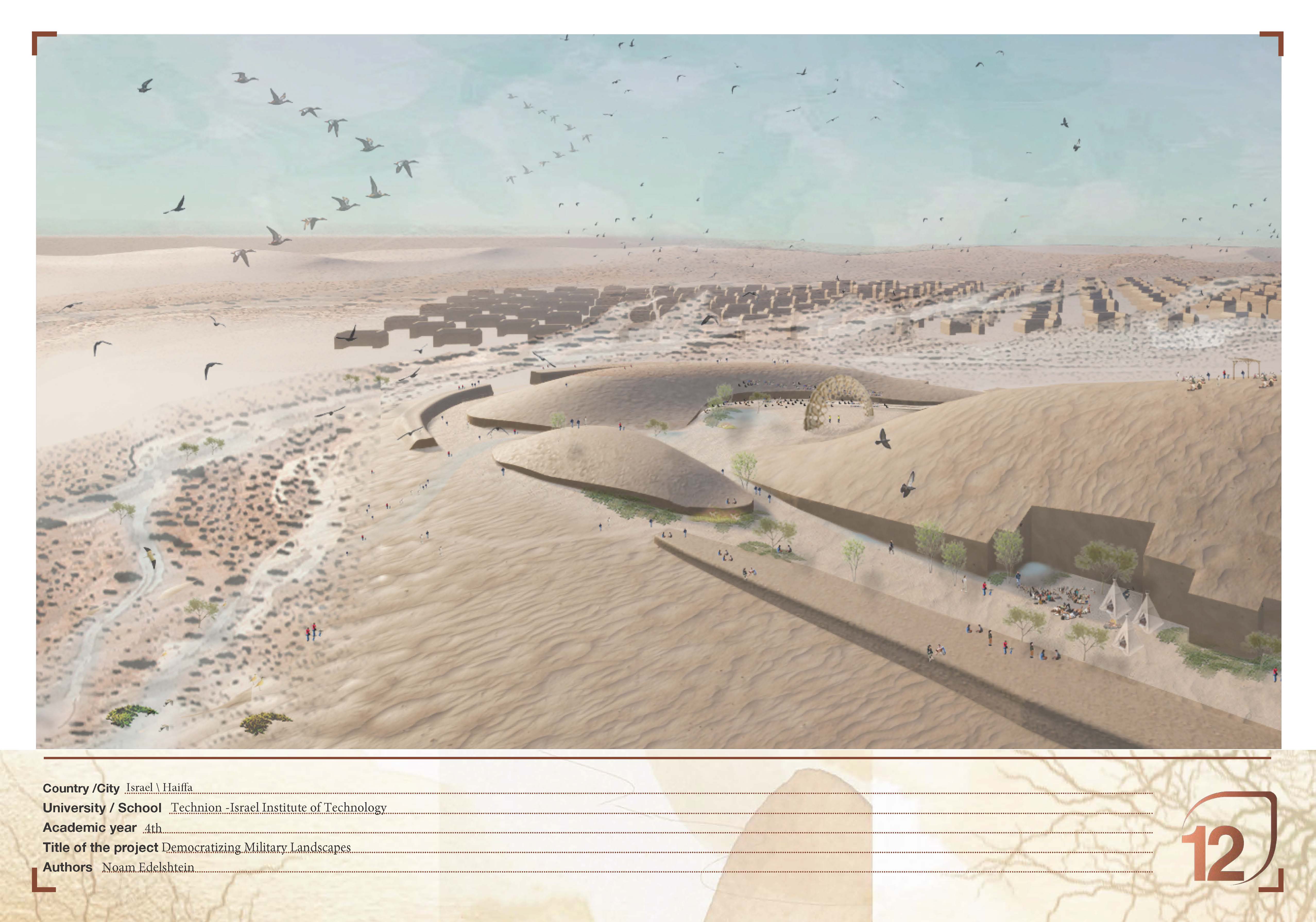
Democratizing Military Landscapes
Final Project Studio 70
Technion - Israel Institute of Technology
At a time of population growth and increasing density in Israel, an entire region remains inaccessible, plagued by ongoing division, disruption, and marginalization. The landscape of the Israeli Negev has been transformed and is now dominated by military facilities and firing zones. One-third of Israel and 80% of the Negev region are under national security regulations, highlighting the extent of this closed-off area. The firing zones serve as catalysts for isolating the desert, imposing boundaries of intimidation and exclusion through maps, signs, and access arrangements. However, the Israeli identity is intrinsically tied to the desert's open air, freedom, and rich flora and fauna. This project advocates for the democratization of spaces, expanding civilian freedom within firing zones, and creating secure havens within national security areas. My proposal aims to enhance pathways and spaces, restore and repurpose abandoned firing zones based on military typologies, and establish a shared language that reflects the desert landscape. In particular, I focus on Nitzana, a civilian enclave located within a firing zone, which lies between creeks and settlements and is filled with abandoned military "earth structures."These remnants are transformed into "ecology labs," serving as educational hubs that integrate diverse landscapes within a military zone. These labs encompass nature conservation, desert agriculture, pathways, and platforms for creative interventions. Safe routes depart from Nitzana, seamlessly integrating into the wider regional network. By embracing this transformative approach, the Negev awakens from its silence, fostering freedom and action.
